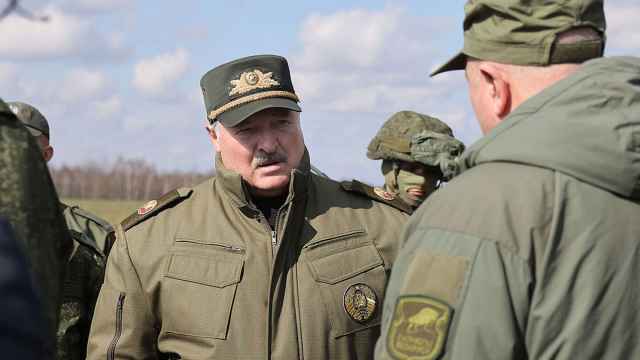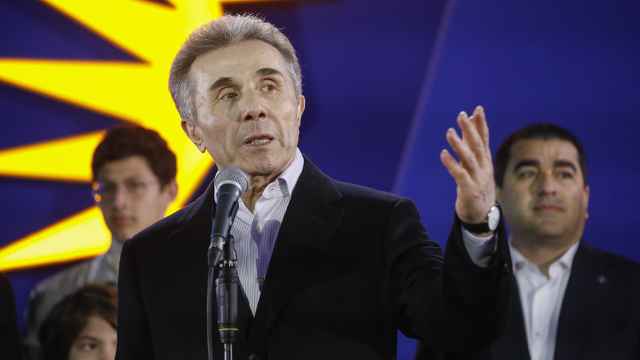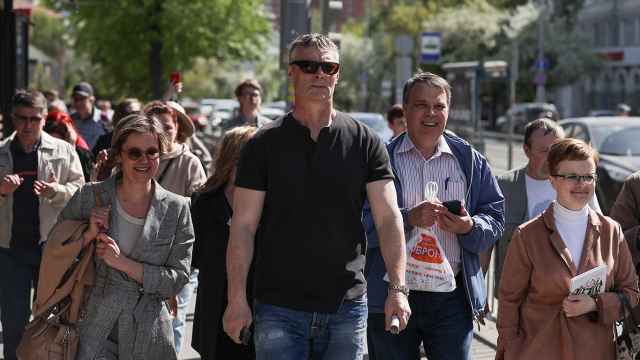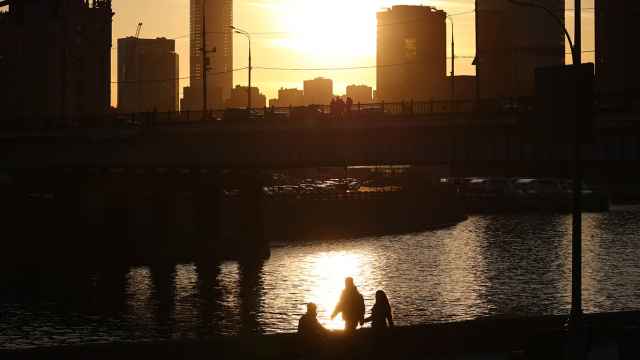Moscow will see an unprecedented influx of EU officials this Thursday when European Commission head Jose Manuel Barroso and 16 commissioners arrive for two days of talks with their counterparts in the Cabinet.
EU diplomats said Tuesday that the meetings, which they described "as the largest ever," will focus on the usual mix of trade, energy and visa policy, but experts warned that they would be strained by the spat over an EU-brokered levy on Cypriot bank deposits.
Moscow's ambassador to the EU, Vladimir Chizhov, said Tuesday that Cyprus would be on the agenda. "I would be surprised if this topic won't be discussed," he said at a news briefing, according to Interfax.
President Vladimir Putin has sharply criticized the plan to levy a 9.9 percent tax on deposits over 100,000 euros ($130,000) and 6.75 percent on smaller deposits. The country will be hit hard by the measure because Russians hold an estimated $20 billion to $30 billion in Cypriot bank accounts, meaning that they would have to pay up to $3 billion.
Finance Minister Anton Siluanov has warned that the levy might negatively affect talks on prolonging a 2.5 billion euro government loan to Cyprus. The island nation's finance minister, Michael Sarris, was due to hold talks on this in Moscow on Wednesday.
German Chancellor Angela Merkel emphasized during a phone conversation with Cypriot President Nikos Anastasiadis on Monday that Cyprus should negotiate only with the so-called Troika, consisting of the European Commission, the European Central Bank and the International Monetary Fund.
National media suggested that this was a sign that EU leaders were unhappy with Moscow's leverage over a member country. However, German media reports said Merkel merely rejected the notion that Berlin was responsible for the bailout.
Apart from Cyprus, the commissioners and Cabinet ministers have enough other controversial topics to cover. In fresh trade spats, the EU is accusing Moscow of protectionism by slapping a recycling fee on cars and import bans on meat products.
Moscow, on the other hand, accuses the EU of unfairly disadvantaging its oil and gas industry by forcing it to split its production and transmission operations in the so-called Third Energy Package.
Both sides are also expected to discuss visas, a constant fixture in EU-Russian relations. Negotiations about a modest facilitation agreement received a new impetus after Germany recently lifted its opposition to a visa waiver for government officials.
But Ambassador Chizhov warned that this was no reason for euphoria. "This is not the solution. The negotiation process has just been unblocked," he said in comments carried by RIA-Novosti.
Labeled "executive to executive," the talks will be overseen by Prime Minister Dmitry Medvedev, who is expected to hold a joint news conference with Barroso on Friday afternoon. However, the commission president will meet Putin as well, the EU said in an e-mailed statement.
EU foreign policy chief Catherine Ashton will not be among the delegation. Diplomats explained her absence with the fact that she had only recently held talks with Foreign Minister Sergei Lavrov in Brussels. EU Council President Herman van Rompuy, who is technically not an EU commission member, is also not coming.
Both Ashton and Van Rompuy have said this week that they would resign from their posts next year.
Contact the author at n.twickel@imedia.ru
A Message from The Moscow Times:
Dear readers,
We are facing unprecedented challenges. Russia's Prosecutor General's Office has designated The Moscow Times as an "undesirable" organization, criminalizing our work and putting our staff at risk of prosecution. This follows our earlier unjust labeling as a "foreign agent."
These actions are direct attempts to silence independent journalism in Russia. The authorities claim our work "discredits the decisions of the Russian leadership." We see things differently: we strive to provide accurate, unbiased reporting on Russia.
We, the journalists of The Moscow Times, refuse to be silenced. But to continue our work, we need your help.
Your support, no matter how small, makes a world of difference. If you can, please support us monthly starting from just $2. It's quick to set up, and every contribution makes a significant impact.
By supporting The Moscow Times, you're defending open, independent journalism in the face of repression. Thank you for standing with us.
Remind me later.






